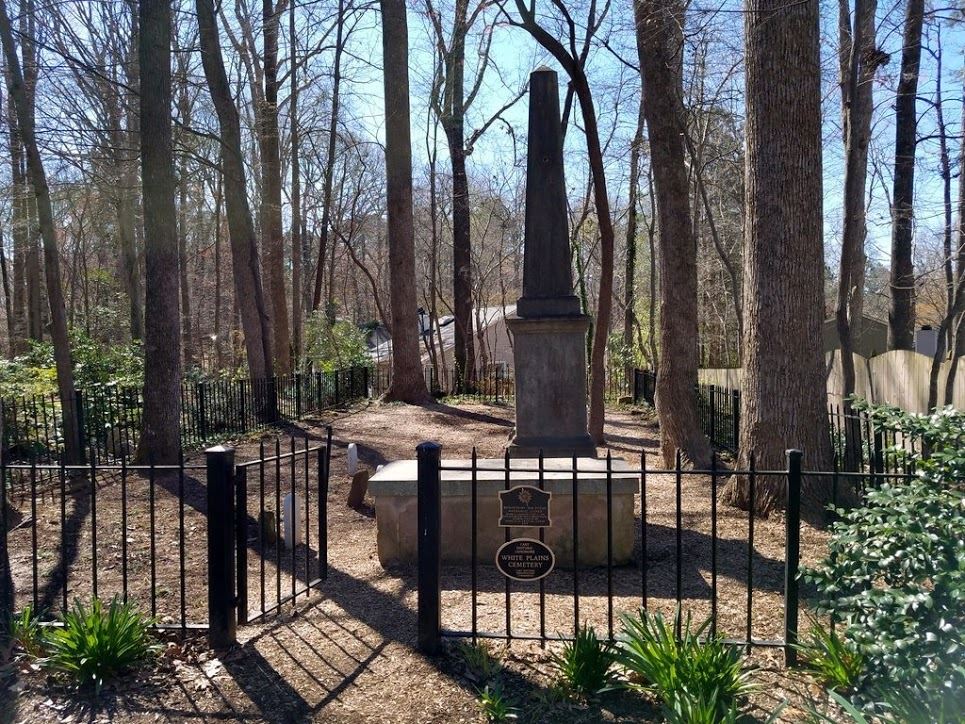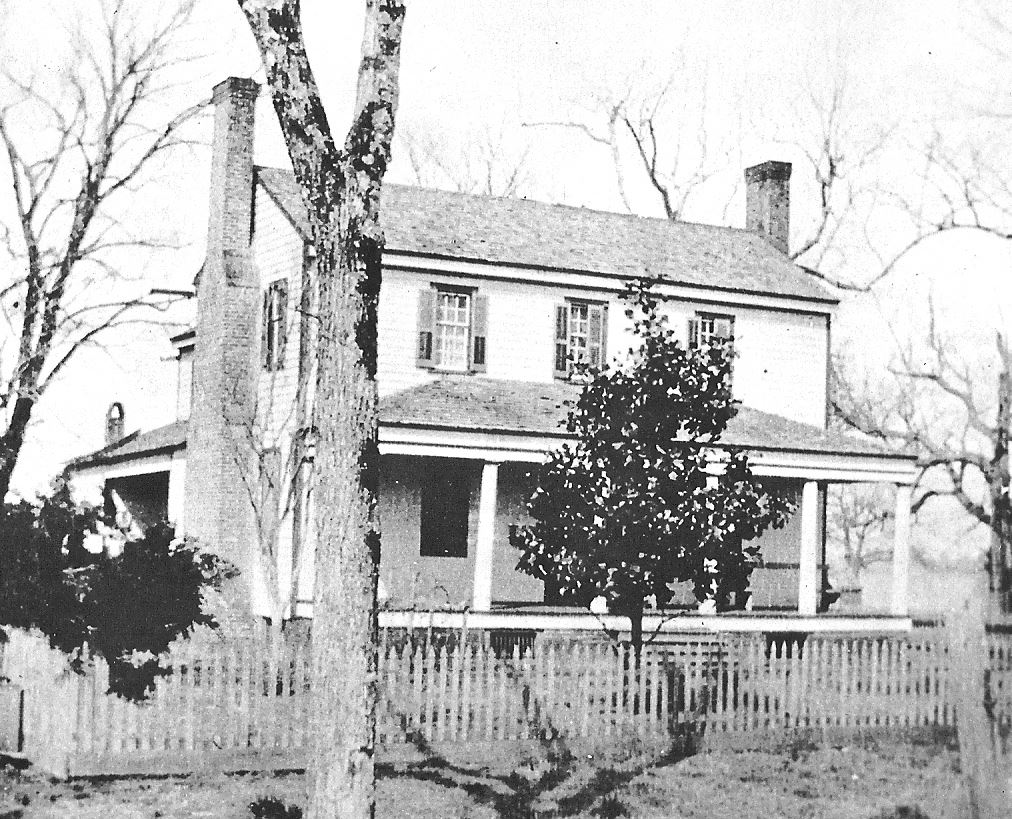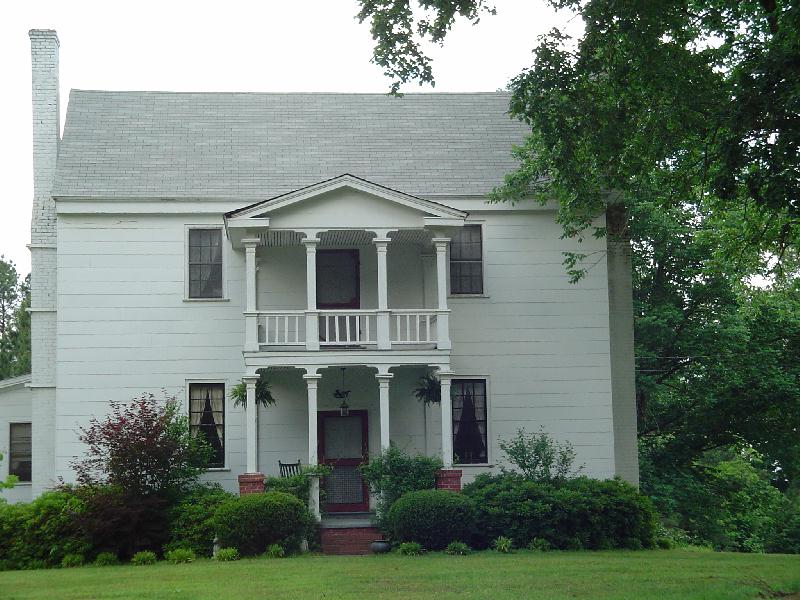 Photo by Charlene Jones
Photo by Charlene Jones
The families living on Tolliver Ct. in the Maynard Oaks neighborhood share their cul-de-sac with some unusual neighbors, the deceased members of the Nathaniel Jones family. Tucked between two houses on the quiet cul-de-sac is the White Plains Cemetery, one of the oldest and most historic sites in Cary, likely dating back to 1780. It's the resting place of the Jones family, at one time the owners of land comprising much of present-day eastern Cary.
Who was Nathaniel Jones? Besides being the owner of 10,000+ acres of land, Jones (1749-1815) was a Revolutionary War Patriot and served as a Wake County Commissioner, Justice of the Peace, Sheriff, Clerk of Court, member of the General Assembly and delegate to the Constitutional Convention in Hillsborough in 1788. In 1792, he offered his land to the state for the future capital of North Carolina, but land owned by Joel Lane was eventually selected in nearby Raleigh.
Jones was born in 1749, about the time the first English settlers began acquiring land through grants from Lord Carteret in the part of the state that would become Cary. In 1772, he married Milleson Blanchard in Chowan County; and in 1774, moved to Wake County and purchased land in the western part of the county, what would become Cary nearly 100 years later. By 1811, he had acquired between 10,000 and 11,000 acres, making him one of the largest land owners ever to  own land in what is now Cary.
own land in what is now Cary.
Jones named his house and property "White Plains" because of the many fields of cotton that surrounded his house. His Federal style plantation home, known as the Jones Manor, was located at what is today the southwest corner of Walnut Street and Greenwood Circle in Cary. The house, pictured to the right, was still standing in the 1950s before it was demolished.
Keeping Up With The Joneses
Nathaniel Jones was a popular name In Wake County during the mid-to-late 18th century and early 19th century. There were four of them! The two most prominent among the four were Nathaniel Jones of Crabtree and Nathaniel Jones of White Plains. Both owned large tracts of land, one in what is now western Cary around Crabtree Cr eek (hence the distinction, Nathaniel Jones of Crabtree) and one in what is now eastern Cary surrounded by fields of cotton (hence the distinction Nathaniel Jones of White Plains). These two Nathaniel Joneses were not related, but their two families were eventually connected through marriage when Nancy Jones, daughter of Nathaniel Jones of White Plains, married Henry Jones, son of Nathaniel Jones of Crabtree on February 3, 1813. Henry inherited a house built by his father in the early 1800s that is still standing and is another very historic Cary property, the Nancy Jones house on Chapel Hill Rd., pictured to the left. The house is named for Nancy who outlived Henry by 35 years.
eek (hence the distinction, Nathaniel Jones of Crabtree) and one in what is now eastern Cary surrounded by fields of cotton (hence the distinction Nathaniel Jones of White Plains). These two Nathaniel Joneses were not related, but their two families were eventually connected through marriage when Nancy Jones, daughter of Nathaniel Jones of White Plains, married Henry Jones, son of Nathaniel Jones of Crabtree on February 3, 1813. Henry inherited a house built by his father in the early 1800s that is still standing and is another very historic Cary property, the Nancy Jones house on Chapel Hill Rd., pictured to the left. The house is named for Nancy who outlived Henry by 35 years.
In addition to having large land ownership in common, the two Nathaniel Joneses were political rivals. Both were candidates for the House of Commons during the late 18th century, and their efforts to win a seat generated some negative discourse. Recorded in Raleigh's The Morning Post, Nathaniel Jones of White Plains told his opponent, Nathaniel Jones of Crabtree, "I am going to beat you because your constituents have not any shoes and it is too cold to walk barefooted to Raleigh." Nathaniel Jones of Crabtree informed his constituents about these comments and "when election day come, streams of men could be seen on every road, with corn whiskey in their stomachs and shoes and sticks over their shoulders, their feet naked, hurrahing for Jones of Crabtree. Jones of White Plains was badly beaten."
50 Years before the Emancipation Proclamation, Jones Wanted to Free His Enslaved Workers
Nathaniel Jones of White Plains is noted for his last will and testament, in which he requested that his enslaved workers be set free, 50 years before the Civil War and the Emancipation Proclamation. In his words:
I suppose it will be asked my reason for Emancipating my Negro Slaves (as soon as) the laws of the State will admit or Tolerate it, which reason are as follows:
Reason the first, agreeable to the rights of man, every humane person, be his colour what it may, is entitled to Freedom, when he or she or they arrive at mature years.
Reason the second, my conscience the grate Criterion condemns me for keeping them in slavery.
Reason the third, the Golden Rule directs us to do unto every Humane Creature, as we would wish to be done unto, and shure I am, that there is not one of us would agree to be kept in slavery during a long life.
Reason the fourth and last, I wish to die with a clear conscience that I may not be ashamed to appear before my master in the future world.
Sadly, Jones' enslaved workers were not freed because the law in North Carolina at the time would not allow it.
Watch for More Posts and a Livestream Visit to the White Plains Cemetery
This month we're trying something new and are bringing you weekly posts with more information about Nathaniel Jones and his family and about the cemetery in which they are laid to rest. And we're going to take you to the White Plains Cemetery via live streaming on our
Facebook page. Follow along in this blog during September as we present new information about Nathaniel Jones, and tune in to accompany us on a visit to this Cary historic landmark on September 14 at 6:00 p.m.
